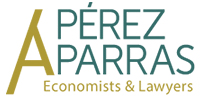There are new deductible rental expenses for non‑residents in Spain, even if you live outside the EU. Good news for non‑resident landlords!
A recent judgment by Spain’s Audiencia Nacional recognises that non‑EU/EEA non‑residents (for example, residents of the United States, the United Kingdom, Switzerland, Africa, Japan, etc.) may deduct the necessary expenses to compute the taxable base of the Non‑Resident Income Tax (IRNR) arising from renting property located in Spain, on the same footing as EU/EEA residents. The decision is open to a cassation appeal, so it is advisable to plan ahead to protect deadlines and rights. This judgment means that new deductible rental expenses for non‑residents can be claimed under Spain’s IRNR.
What has changed with this spanish Audiencia Nacional judgment?
On 28 July 2025, the spanish Audiencia Nacional issued a very important Judgment which annulled a criterion of the Central Economic‑Administrative Tribunal (TEAC) and confirmed that it is not consistent with EU law to exclude non‑residents from third countries from the right to deduct expenses directly connected with renting property in Spain. It also recalls the non‑discrimination clause in the Spain–United States Double Taxation Convention and the case‑law of the Court of Justice of the European Union (CJEU) on the free movement of capital. The judgment can be appealed in cassation, but it has already opened the door for new deductible rental expenses for non‑residents to be claimed in the Non-Resident Income Tax in Spain.
What does the court rely on?
-
Article 63 TFEU (free movement of capital), whose protection also extends to residents of third countries according to CJEU case‑law.
-
The fact that Article 24(6) TRLIRNR already allows EU/EEA residents to deduct expenses “directly related to the income obtained in Spain” (special rule), and that there is no valid basis to exclude non‑EU residents when the free movement of capital applies.
Who benefits, and from when the new deductible rental expenses for non‑residents in Spain?
Beneficiaries. Non‑resident property owners with no permanent establishment in Spain who rent properties located in Spanish territory and reside outside the EU/EEA, provided the expenses are directly linked to the rental income.
Which new deductible rental expenses for non‑residents can I now claim on my tax return?
The practical rule is simple: the same deductible expenses that apply under Spain’s Personal Income Tax (IRPF) for rental income, provided they are directly related to letting the property in Spain and you can substantiate them. Common examples include:
-
Necessary repairs and maintenance to rent out the dwelling.
-
Community fees, IBI (property tax) and related municipal charges.
-
Property insurance linked to the letting.
-
Agency fees, management and administration of the rental.
-
Interest on loans tied to the property.
All of them must have a direct and inseparable economic link to the rental activity and be supported by invoices and proof of payment.
Important: the judgment does not remove evidentiary requirements. The Tax Agency may request proof of the expense and its correct timing.

IRNR deductible rental expenses for non‑resident non‑EU landlords — common examples: repairs and maintenance, community fees/IBI, insurance, management and administration fees and mortgage interest; always with invoice and proof of payment.
How to take advantage of this opportunity and deduct the new deductible rental expenses for non‑residents in Spain: practical steps
1) Review your Non-Resident Income Tax self‑assessments (Form 210 Spain).
Identify quarters with rental income in which you did not deduct expenses because you were a non‑EU/EEA resident. If you followed the previous criterion (limited to EU/EEA residents), you are a clear candidate for rectification.
2) Check the four‑year period.
The general statute of limitations to claim refunds and amend returns is four years, in line with Spain’s General Tax Law. The calculation starts the day after the statutory filing deadline for the affected period.
3) Gather documentation.
- Lease agreement and proof of rent collection.
- Invoices (repairs, community fees, IBI/municipal charges, insurance, fees, interest) and proof of payment.
- Certificate of tax residence in your country.
- NIE/NIF and title deeds.
4) Calculate the “net” taxable base.
Apply the deductible expenses that meet the above requirements, with the corresponding proration if they do not cover the full period.
5) File the request to rectify so you can claim the new deductible rental expenses for non‑residents in Spain.
The Spanish Tax Agency (AEAT) provides the “Rectification of self‑assessments” procedure to adjust Form 210 for the affected period and, where applicable, request a refund of overpaid tax.
6) Protect your rights: interrupt limitation periods.
Given the potential cassation appeal by the State Attorney’s Office, it is prudent to seek rectification for non‑time‑barred years in order to keep them open while the doctrine is consolidated.
At Pérez Parras Economists and Lawyers, we are experts in non-resident taxation (IRNR), and we can help you with this procedure.
FAQs
I am a non‑EU national and I rent out property in Spain. Do these new deductible rental expenses for non‑residents in Spain apply to my Non-Resident Income Tax?
Yes, if you do not have a permanent establishment in Spain and the expenses are directly related to the letting. The judgment equates, based on the TFEU, your treatment with that of EU/EEA residents on this point.
What if the Spanish Tax Agency appeals the new deductible rental expenses for non‑residents in Spain?
The judgment is open to cassation; that is why we recommend filing for rectification for non‑time‑barred years and thoroughly documenting each expense. In this way you preserve your position and avoid losing rights with the passage of time.
Can I request a refund if I already paid without deducting expenses?
Yes. The route is the rectification of self‑assessments with a refund request (where appropriate), within four years.
Are my expenses always valid?
They must be necessary, duly evidenced and have a direct link to the letting. Personal or non‑related expenses will not be accepted.
Why trust Perez Parras Economists & Lawyers?
In Malaga, Nerja and the Costa del Sol we advise non‑resident property owners on non-resident taxation (IRNR)and Spanish real estate taxation:
- review of Form 210 Spain returns and rectification plans;
- calculation of deductible expenses and preparation of the evidence;
- dealings with the Spanish Tax Agency (AEAT) and, where appropriate, claims.
Our approach is preventive (General Tax Law deadlines), evidence‑based (invoices and payments) and strategic (TFEU/CJEU doctrine and the Audiencia Nacional judgment under analysis).
Conclusion and concrete actions regarding the new deductible rental expenses for non‑residents in Spain
- Identify your non‑time‑barred periods with rental income where you did not deduct expenses on Form 210 Spain.
- Gather invoices and proof of payment for deductible expenses and link them to the letting.
- Request the rectification of non-resident taxation (IRNR) self‑assessments and, where applicable, a refund.
- Act now to interrupt limitation periods while any cassation appeal is resolved.
At Perez Parras Economists & Lawyers, with offices in Málaga and Nerja, we have dual‑qualified professionals in Law and Economics, bilingual (English/Spanish), who will not only file your Non‑Resident Income Tax (IRNR) return, knowing all the case‑law and regulations in detail, but will also optimise your taxation so that your return is correct—paying what is fair and no more—without errors, in line with the applicable regulations and the interpretation given by the Spanish courts in different scenarios. If you would like top‑level international tax specialists in Malaga to prepare and advise you on your Non‑Resident Income Tax (IRNR), do not hesitate to contact Pérez Parras Economists & Lawyers in central Malaga and Nerja. We currently advise clients across five continents.


LEAVE A REPLY